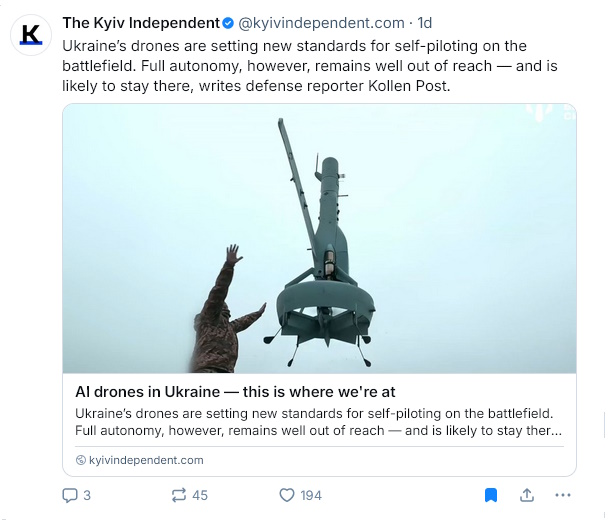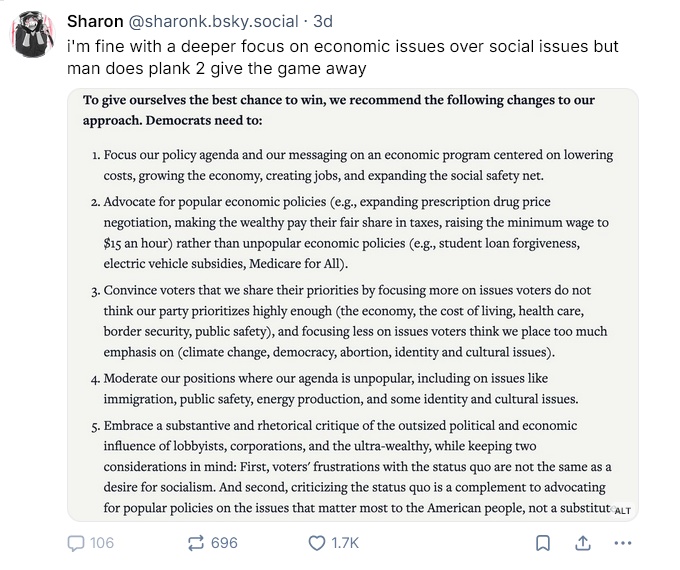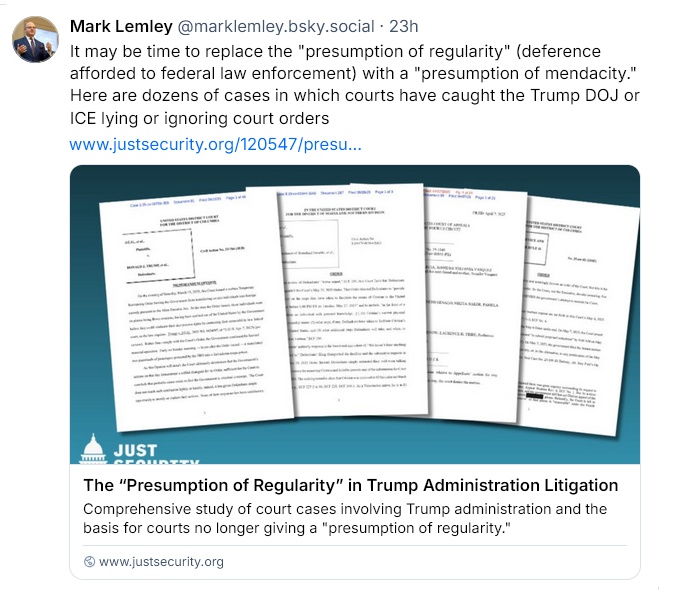

* This is an archive of my own blog and online notes, with weekly entries collected by month. The current week in stand-alone format is available here. Feel free to CONTACT ME if so inclined.
DAYLOG MON 27 OCT 25 / AI FOR WARDRONES: The war in Ukraine has been very much dominated by drones. As discussed in article from KYIV INDEPENDENT ("AI drones in Ukraine -- this is where we're at" by Kollen Post, 25 October 2025), artificial intelligence technology is becoming an ever more significant element -- if in limited ways.

Ukraine's Commander-in-Chief Oleksandr Syrskyi commented in August: "Virtually all of our technological weapons have elements of artificial intelligence." Syrsky also warned that, as everyone knows, AI "makes mistakes".
The idea of a fully autonomous AI-powered drone is attractive, but not technically possible today, particularly because it poses substantial commmand-&-control challenges. Andriy Chulyk -- a co-founder of Sine Engineering, which makes drone guidance modules and software -- says:
QUOTE:
We're not going along the route of that full autonomy. Tesla, for example, having enormous, colossal resources, has been working on self-driving for ten years and, unfortunately, they still haven't made a product that a person can be sure of.
END_QUOTE
As with most AI technology these days, battlefield AI is not replacing humans, instead performing a supporting role. One reason for the conservative approach is that a handheld drone can't haul very much computing power, so it can do some things but not others.
One notable example is first-person view (FPV) killer drones. Even with AI, they still have to be flown by a remote pilot -- but AI can be used to pick out and zero in on a target. Jamming gets worse as the target is approached, but an AI can't be jammed.
In the same way, deep-strike drones can't be built to seek targets on their own, lest they hit Russian civilian targets -- though AI can be used to support terminal attack. Fast interceptor drones, built to take down Russian Shahed and other killer drones, also use AI for terminal attack -- since Russian drones typically take evasive action when they are attacked, and AI can react more quickly and effectively than a drone pilot.
Yaroslav Azhnyuk -- founder and CEO of two companies, The Fourth Law (TFL) and Odd Systems -- says that current interceptors "still rely on FPV technology." Odd Systems started out as a mass FPV producer and is working on interceptors. TFL produces small and cheap -- roughly $70 USD -- AI vision modules for FPVs. These modules are continually being improved to permit more accurate targeting in the face of camouflage or uncertain lighting.
Aznyuk says full autonomy is a distant goal. Some of the Western-built drones deployed in Ukraine are much smarter than Ukrainian drones, but these smarter drones are also much more expensive. The balance between smarts and cost is still being determined. In the meantime, work on AI for weapons is in high gear -- if in large part because it's the current fad.
DAYLOG TUE 28 OCT 25 / WHAT TO DO ABOUT ICE: Americans are now painfully aware of the way that Donald Trump's Immigration & Customs Enforcement (ICE) storm troopers are terrorizing the streets of our cities, snatching up people without concern for legal niceties.

Commenter Paul Waldman, of THE AMERICAN PROSPECT, released an essay on PUBLIC NOTICE ("ICE is out of control and beyond repair", 27 October 2025) that looked into the issue. After Trump came into power, he massively increased ICE's budget and swelled its ranks.
Physical and educational requirements for ICE have been minimized, as has been training time, to get more agents on the streets -- these agents being told they can do things any way they feel like doing them. ICE leadership not in tune with the new order are being purged. It seems the FBI is similarly being "dumbed down".
In any case, only goons want to join ICE these days, with videos appearing daily of their thuggery. What to do about it? Waldman says: "Put simply, ICE needs to be stripped down to the studs."
Democrat leadership has recognized the threat, Illinois Governor JB Pritzker announcing: "The tables will turn one day." -- and warning that although ICE agents won't be prosecuted soon for their crimes, they may not remain safe forever. Pritzker has set up an accountability commission "tasked with capturing and creating a public record of the conduct of federal law enforcement agents and recommending actions to hold the federal government accountable."
Similarly, New York Attorney General Letitia James set up a portal where people can report ICE abuses and upload pictures and video so her office can determine if laws have been broken. Representative Nancy Pelosi and colleagues have warned that ICE agents are liable for crimes under local and state laws -- with Federal AG Pam Bondi and her people threatening to "investigate and prosecute" any California officials who try to hold ICE agents accountable.
Over the longer run ... reasonably assuming that the Democrats take back the House in 2027, they not only need to push for laws, but also need to conduct hearings on ICE abuses to sway public opinion. The public is already taking an increasingly dim view of ICE.
If the Democrats return to the White House in 2029, they will need to "de-Trumpify" the Federal government. As for ICE, everyone hired under Trump needs to be fired, and ICE agents would no longer wear masks; they would have to wear badges and ID while adhering to the law in their actions. ICE agents and officials who committed crimes will be held responsible for them. As Waldman says, ICE does serve a useful function, but it has to be "completely remade. And it's not too early to start preparing."
DAYLOG WED 29 OCT 25 / GROKIPEDIA: Elon Musk is never up to any good, the latest example being a competitor to Wikipedia titled "Grokipedia", generated by Musk's Grok AI bot. To no surprise, Grokipedia puts a Right spin on its articles.

One Jason Koebler, a co-founder of 404 MEDIA, writes in an essay there ("Grokipedia Is the Antithesis of Everything That Makes Wikipedia Good, Useful, and Human", 28 October 2025) says that Grokipedia is not so much a Wikipedia clone as it is an "anti-Wikipedia". Musk, who is down on Wikipedia because the Wikipedia page on him is unflattering, launched Grokipedia to retaliate, with Koebler saying that it "serves no one and nothing other than the ego of the world's richest man."
Right now, Grokipedia is much weaker than Wikipedia, with only a fraction of the articles, no pictures, and poorly-organized writing -- Koebler saying it's what happens when an LLM is commanded to create an "anti-woke encyclopedia", which is effectively what Musk did.
Musk seems to have a veiled agenda in creating Grokipedia. Attempts to shift Grok replies to the Right only made it blatantly fascistic; Grokipedia instead provides Grok with a biased knowledge base that isn't so obviously bogus. Beyond that agenda, Koebler feels Grokipedia will fail, as did previous attempts to "compete" with Wikipedia -- probably the most notorious being "Conservapedia", created in 2006 by RWNJ Andy Schlafly. It never got more than niche participation and use.
Koebler says in summary that Grokipedia is everything that Wikipedia is not: "It is not an encyclopedia, it is not transparent, it is not human, it is not a nonprofit, it is not collaborative or crowdsourced, in fact, it is not really edited at all." It's AI trash.
CO2 & CROP YIELDS: I did some poking around in Grokipedia's materials on climate change. It seemed generally on the level, the skews in the narrative being subtle. One claim that was rising CO2 levels improve crop yields. I was skeptical and investigated.
Yes, it is true that, in principle, higher CO2 concentrations do improve crop yields -- but only if all other things are equal, and they're not. Rising temperatures, droughts, and rough weather reduce crop yields, and most studies predict climate change will do just that. Like I said, Elon Musk is never up to any good; nobody with sense would believe anything he said, and nobody with sense would trust Grok's replies. How Grok and Grokipedia play out over the longer run, however, remains to be seen.
DAYLOG THU 30 OCT 25 / DEM POLICY PAPER: A recent report from WelcomePAC, which supports Center-Left candidates, gave a prescription for how the Democratic Party can recover from the 2024 election disaster. According to POLITICO, suggestions included:

QUOTE:
Talk more about the economy and less about democracy. Reject corporate interests and ideological purity tests. Keep the progressive policies that are popular -- like expanding health care and raising the minimum wage -- and moderate on issues like immigration and crime.
END_QUOTE
It all sounds safe as milk on first sight, but on second thought it felt like too much like saying: Focus on the economy, forget about LGBT / reproductive rights and climate change. One Dave Karpf, posting on BlueSky, had a number of insights:
Dems have been pushing practical issues like the economy all along, while the GOP hardly cares about helping voters; they still win, knowing that "Haitians are eating the dogs and cats" is a more persuasive pitch than "we'll help you buy a home".
The bottom line here is that people who voted for Trump don't care about policy positions -- but on the other side of that coin, those who voted for Kamala do. Maybe the Dems lose nothing supporting LGBT and reproductive rights, or climate-change action, while losing something if they don't. Why betray voters when it buys nothing?
GOP control of the media presents a major easy challenge -- but trying to move to a mythological "Center" is unwise. In an era of extreme polarization, there are no compromise positions; no Center to move to. We have to know our principles and stick to them.
I should add myself that the USA is in a highly unstable state: voters are disoriented, and polls tell us little. The Dems need to stand on principle and have clear direction. We can only have faith that voters want to do the right thing, and realize the GOP does not.
DAYLOG FRI 31 OCT 25 / JUDICIARY V TRUMP: There are times when it seems that nothing can slow Donald Trump -- but law blogger Jay Kuo points out in an essay on THE BIG PICTURE ("Trump's Getting Thumped In Court", 30 October 2025) that the judiciary is not so friendly to him. Trump, through Attorney General Pam Bondi, has worked hard to subvert the Department of Justice, replacing competent prosecutors with unqualified stooges willing to go as low as needed.

The first problem is that these stooge prosecutors have to be confirmed by the Senate, and there are enough conscientious GOP in the Senate to keep that from happening. The end result is that the courts are increasingly inclined to disqualify the stooges.
This is particularly noticeable in Trump's efforts to legally persecute his political enemies. New York State AG Tish James, targeted in a dubious indictment, has replied to state that Lindsey Halligan, the prosecutor, was not lawfully appointed. James has an excellent case, backed up the reality that the courts are increasingly questioning the "presumption of regularity (POR)" for the Trump Regime -- the POR being a legal concept requiring the courts to assume the government is working in good faith.
The POR is undermined when Trump sends out ranting broadcast messages demanding that his enemies be crushed; Bondi and her people are almost as bad. That's the second problem, the courts are inclined to dismiss obviously malign and frivolous Trump cases with prejudice. The lower courts are not friendly to Trump, not generally willing to judge him kindly, are now often judging against him, and becoming stricter about compliance -- the Trump Regime also having an inclination to defy court orders. The latest example is the courts telling Trump to come up with a plan to provide stalled SNAP (food stamp) benefits.
However, there's also the issue of SCOTUS, which has tended to give Trump generous benefit of doubt. A big example is SCOTUS permitting "racial profiling" in actions of ICE agents against non-white Americans.
The puzzle in this is that it is not exactly obvious how even a conservative SCOTUS can remain complacent about an unhinged president who is outspoken in his dictatorial tendencies. It would seem there would be limits, and signs are the limits are being reached -- SCOTUS, for example, for now restraining Trump from sending the National Guard to Chicago, with the court to formally consider the matter in late November.
Earlier in November, SCOTUS will consider if Trump has the right to impose tariffs without Congressional approval, and whether gay marriage is legal. There is public apprehension over both cases, but the decisions are by no means foregone conclusions.
* I have to add that I find Jay Kuo a relief. It is true that things are very bad -- but completely hopeless? No. As JK points out, the Trump regime is dimwitted, incompetent, and unpopular, pretending to be strong when it is weak. We have to remember that as the fight continues.
BACK_TO_TOP